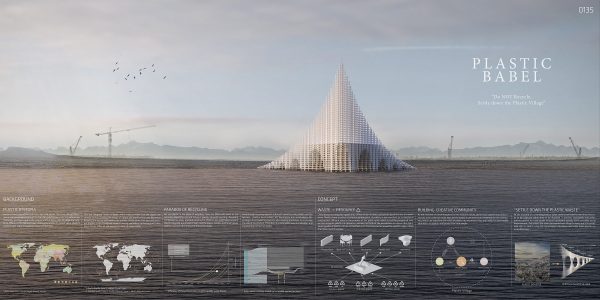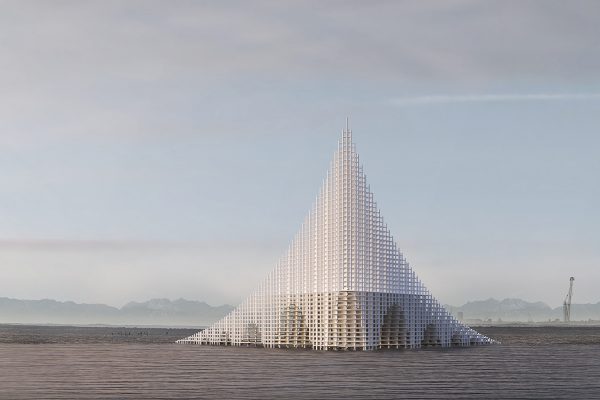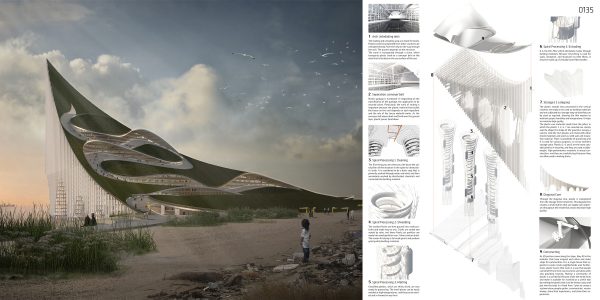Plastic Babel
Honorable Mention
2019 Skyscraper Competition
Jaemin Seo, Sanghoon Park
United States
Plastic Dystopia
Humans have opened the industrial age with plastic. We have enjoyed abundance and convenience through human-designed compounds, not natural raw materials, and have lived in abundance without being able to judge the long-term effects of the behavior over many generations. In recent years, plastics have brought many unexpected results to humans. Like the collapsed Tower of Babel, which tried to reach God, the plastic we created without judging the values of nature and mankind has now become a threat to our nature and mankind as a whole. At the same time, we continue to use plastics. Even though we know it’s wrong, we believe technology will solve these issues. After all, we are on the verge of catastrophe.
Paradox of Recycling
We use plastic in the name of recycling. There are those who want to see optimism about the use and future of plastics through recycling. Recycling is followed by many practical constraints. Plastics are selectively recycled. Plastics recycled are limited in part, and the plastic trashes are thrown away into the sea and ultimately into the human body.
Even though recycling repeats, it doesn’t solve the real problem we face because plastics don’t extinct but decompose into small pieces. Recycling is a contradiction, but it is also a wrong promotion to encourage the use of our plastics. Therefore, it’s incomplete way as a solution, and threatening our human bodies.
Waste=Resource
Crisis always accompanies opportunity. When we do not aim to sell plastic goods we use, it is worth more. Plastics have excellent insulation performance, durability is also excellent as a material of construction. When it aims to the purpose of the public good, which is not the purpose of sale, we can recognize plastics as resources, and we can think of the possibilities in various directions. Seven grades of plastics can be reclassified as to how they can be reused for specific usage, rather than how much they have.
Building creative community
At the moment of converting plastics into resource values, plastics are transformed into resources to be collected rather than to be treated. It can serve as a central role for the community, which can transform the value of plastic into monetary value and make it a sustainable education, occupation and product for local people.
“Settle down the Plastic”
At the moment of converting plastics’ value, plastics are transformed into resources to be collected rather than to be disposed. It provides sustainable education, and occupation to make people involve in economic activity which provokes social improvement. This shows the vision to expand from village to town and the revitalized city. It’s time to stop the meaningless circulation and settle down plastics as an architecture.


Yorumlar
Yorum Gönder